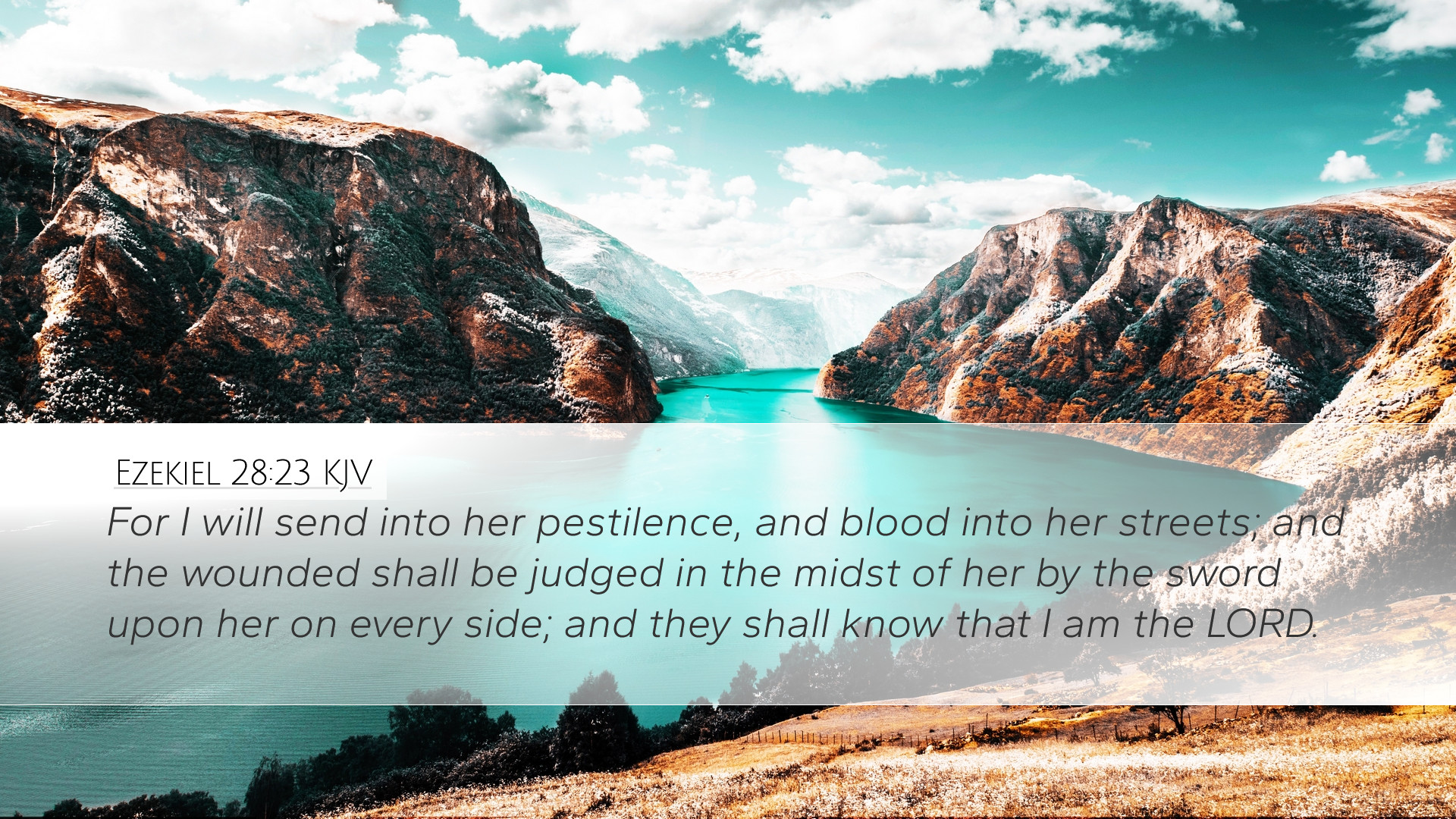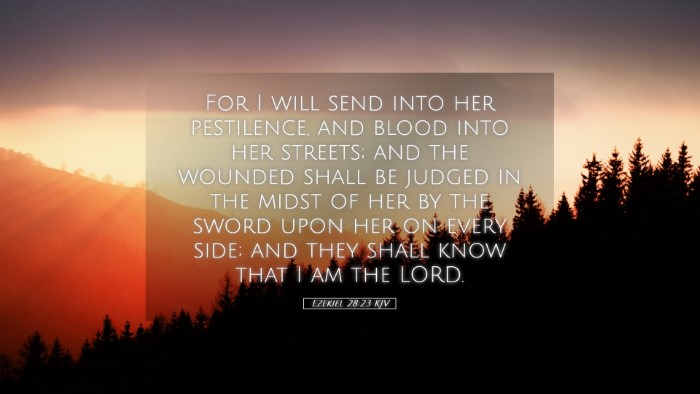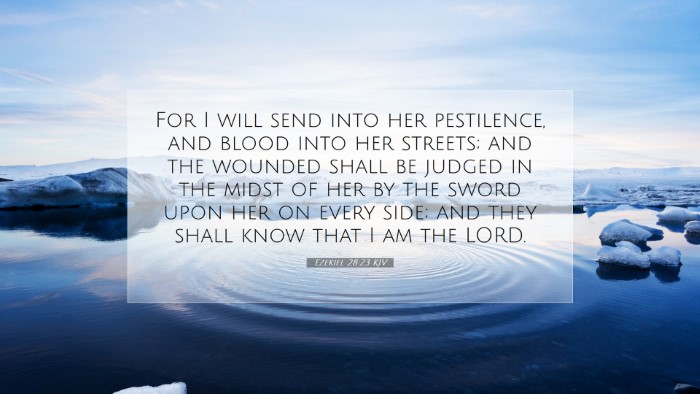Bible Commentary on Ezekiel 28:23
Ezekiel 28:23 reads: "For I will send a plague upon thee, and blood shall be in the midst of thee, and the sword shall come upon thee, and I will bring the sword upon thee." This verse occurs in the context of a prophecy against the king of Tyre, illustrating God’s judgment on pride and opposition.
Contextual Background
The chapter addresses both the king of Tyre and the prince, delivering divine condemnation for hubris that arises from success and wealth. This ties to the broader themes of God's judgment in Ezekiel, emphasizing how He holds nations and rulers accountable for their actions.
Historical Insights
- Tyre's Significance: Tyre was a major maritime power and renowned for its trade and wealth. The city’s pride and self-sufficiency had led to its moral decay.
- Divine Judgment: The prophecies encapsulated a vivid picture of impending doom, showcasing the inevitability of divine intervention.
Theological Reflections
From a theological standpoint, Ezekiel 28:23 serves as a profound reminder of God's sovereignty and the consequences of human pride. Matthew Henry notes that God’s judgments are both just and fittingly severe, reflecting His holiness.
Insights from Commentators
- Matthew Henry: Emphasizes that the plague symbolizes both a physical affliction and a spiritual desolation. He notes how the consequences of sin lead to chaos, a significant warning to both individuals and nations.
- Albert Barnes: Points out the duality of “blood” and “sword” as symbols of imminent destruction. He draws attention to God’s use of various means in executing judgment, reinforcing His control over the world’s affairs.
- Adam Clarke: Observes that the imagery in this verse foreshadows the downfall of Tyre due to its pride. He interprets the sword as emblematic of the violence that results from God’s wrath against arrogance and injustice.
Lessons for Pastors and Theologians
Pastors and theologians can draw several lessons from this verse:
- The Reality of Judgement: God’s judgment on sin is a frequent theme throughout Scripture, and it underscores the necessity for repentance.
- Nation’s Moral Responsibility: Leaders must recognize their accountability to God, as the kings of nations are viewed under divine scrutiny.
Application for Contemporary Readers
In modern contexts, believers are called to reflect on their engagement with pride and self-sufficiency, recognizing that divine judgment can manifest in numerous ways in today’s society. The passage serves as an admonition against arrogance, urging one to seek humility.
Conclusion
Overall, Ezekiel 28:23 encapsulates a significant theological insight into God’s approach to sin, pride, and punishment. By examining the teachings of Henry, Barnes, and Clarke, readers can appreciate the depth of Scripture and the relevance of its warnings.


